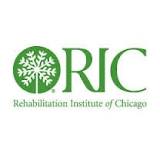Application of Targeted Reinnervation for People With Transradial Amputation
| Status: | Recruiting |
|---|---|
| Healthy: | No |
| Age Range: | 18 - 95 |
| Updated: | 2/24/2018 |
| Start Date: | December 2014 |
| End Date: | January 2021 |
| Contact: | Kristi Turner, OTR/L |
| Email: | kturner@ricres.org |
| Phone: | 312-238-1364 |
The purpose of this study is to improve prosthesis control for transradial amputees with
combining targeted muscle reinnervation surgery (TMR) and pattern recognition control.
combining targeted muscle reinnervation surgery (TMR) and pattern recognition control.
Phase 1: Transradial amputees will be asked to come to the Rehabilitation Institute of
Chicago, Walter Reed National Military Medical Center or the San Antonio Military Medical
Center for initial fitting with a prosthetist for a multifunctional hand system or
multifunctional hand and wrist system. The prosthesis system will consist of a custom-made
socket and commercially available components. The first visit (up to five days)s involves
casting, creating and fitting of a socket that will be used for the study. During the initial
and subsequent visits, the subject will be asked asked to practice various control methods
using a virtual reality system. EMG data and virtual "games" will be used to practice the
control and will provide quantitative data that can be used to assess the various control
methods mathematically, without the prosthesis.
Once they receive a socket, they will complete 1-3 days of training to learn how to control
the prosthesis with either conventional or pattern recognition control. The prosthetic
training days may occur concurrently with the fitting appointment or it may require a
separate visit. The subject will return home for the initial 8 week home use trial. They will
be asked to use the prosthesis for an average of 2 hours per day across the 8 week home trial
period. They will keep a home log of prosthesis use and check in weekly with a therapist to
discuss usage and prosthesis performance. They may also be provided with a laptop computer
with a camera for Skyping. The laptop can be connected to the prosthesis, and the screen can
be viewed remotely. The research team can then continue with remote follow up with more
training and problem solving as needed. Directly following the 8 week home trial period,
usage data from the prosthesis will be downloaded. The subject will complete 1-3 days of
outcomes testing with a therapist. A series of tests will be performed and data recorded of
your performance. The subject will then repeat the 1-3 days of training, 8 week home trial
period, and 1-3 days of outcomes testing with either the other type of control (i.e.
conventional or pattern recognition).
Phase 2: The subject will return to one of the three centers for Targeted Muscle
Reinnervation (TMR) surgery. The surgery is an outpatient procedure that will be performed
under general anesthesia, consistent with current standard of care. The surgery will involve
the transfer of the median nerve to the flexor digitorum superficialis (DFS) muscle and the
ulnar nerve will be transferred to the flexor carpi ulnaris (FCU) muscle. Both transfers can
be done with a single incision. Alternative target muscles (e.g. the brachioradialis muscle)
can be used if trauma interferes with use of the DFS and/or FCU. Some post-operative pain is
expected and the subject will be given a prescription for pain medication if needed. Two
weeks after the surgery the subject will be asked to start doing exercises to help with
muscle recovery. They will return to using the prosthesis from Phase 1 with either
conventional or pattern recognition control for 6 months after surgery. Socket adjustments
will be made if needed. If they return to using pattern recognition control, their usage and
performance data will be tracked during this 6 month period. The subject may be provided with
a laptop computer and asked to perform a series of virtual tests. They will receive
additional training on how to complete these tests. If the subject returns to using
conventional control, they will not be asked to complete the additional tests, nor will the
usage or performance data be tracked. Six months after surgery, when reinnervation of the
target muscles has been completed, the subject will return to using the prosthesis with
pattern recognition control. They will be asked to return to one of the three centers if
socket adjustments or a replacement socket is needed. The subject will receive 1-3 days of
pattern recognition control training, only this time special attention will be paid to
utilizing EMG from target muscles for improved function. Preliminary testing will be done to
ensure that they can adequately use the prosthesis. The subject will then take the prosthesis
home for a third 8-week home-use trial. The subject will be asked to log daily use of the
device, note any issues, and follow up weekly with a therapist. After this home-use trial,
the same 1-3 days of comprehensive outcomes testing will be completed and usage data from
their prostheses will be downloaded.
Finally, the subject will continue using the prostheses at home for an additional 3-4 months.
No usage requirements will be given during this time. At the end of this 3-4 month period
(approximately 12 months after surgery), they will have a final round of 1-3 days of testing
with the complete toolbox and data from the prosthesis will be downloaded.
The days of prosthesis training and testing may take place at the Rehabilitation Institute of
Chicago, Walter Reed National Military Medical Center, or the San Antonio Military Medical
Center or near your home. Study coordinators will determine the best location.
Chicago, Walter Reed National Military Medical Center or the San Antonio Military Medical
Center for initial fitting with a prosthetist for a multifunctional hand system or
multifunctional hand and wrist system. The prosthesis system will consist of a custom-made
socket and commercially available components. The first visit (up to five days)s involves
casting, creating and fitting of a socket that will be used for the study. During the initial
and subsequent visits, the subject will be asked asked to practice various control methods
using a virtual reality system. EMG data and virtual "games" will be used to practice the
control and will provide quantitative data that can be used to assess the various control
methods mathematically, without the prosthesis.
Once they receive a socket, they will complete 1-3 days of training to learn how to control
the prosthesis with either conventional or pattern recognition control. The prosthetic
training days may occur concurrently with the fitting appointment or it may require a
separate visit. The subject will return home for the initial 8 week home use trial. They will
be asked to use the prosthesis for an average of 2 hours per day across the 8 week home trial
period. They will keep a home log of prosthesis use and check in weekly with a therapist to
discuss usage and prosthesis performance. They may also be provided with a laptop computer
with a camera for Skyping. The laptop can be connected to the prosthesis, and the screen can
be viewed remotely. The research team can then continue with remote follow up with more
training and problem solving as needed. Directly following the 8 week home trial period,
usage data from the prosthesis will be downloaded. The subject will complete 1-3 days of
outcomes testing with a therapist. A series of tests will be performed and data recorded of
your performance. The subject will then repeat the 1-3 days of training, 8 week home trial
period, and 1-3 days of outcomes testing with either the other type of control (i.e.
conventional or pattern recognition).
Phase 2: The subject will return to one of the three centers for Targeted Muscle
Reinnervation (TMR) surgery. The surgery is an outpatient procedure that will be performed
under general anesthesia, consistent with current standard of care. The surgery will involve
the transfer of the median nerve to the flexor digitorum superficialis (DFS) muscle and the
ulnar nerve will be transferred to the flexor carpi ulnaris (FCU) muscle. Both transfers can
be done with a single incision. Alternative target muscles (e.g. the brachioradialis muscle)
can be used if trauma interferes with use of the DFS and/or FCU. Some post-operative pain is
expected and the subject will be given a prescription for pain medication if needed. Two
weeks after the surgery the subject will be asked to start doing exercises to help with
muscle recovery. They will return to using the prosthesis from Phase 1 with either
conventional or pattern recognition control for 6 months after surgery. Socket adjustments
will be made if needed. If they return to using pattern recognition control, their usage and
performance data will be tracked during this 6 month period. The subject may be provided with
a laptop computer and asked to perform a series of virtual tests. They will receive
additional training on how to complete these tests. If the subject returns to using
conventional control, they will not be asked to complete the additional tests, nor will the
usage or performance data be tracked. Six months after surgery, when reinnervation of the
target muscles has been completed, the subject will return to using the prosthesis with
pattern recognition control. They will be asked to return to one of the three centers if
socket adjustments or a replacement socket is needed. The subject will receive 1-3 days of
pattern recognition control training, only this time special attention will be paid to
utilizing EMG from target muscles for improved function. Preliminary testing will be done to
ensure that they can adequately use the prosthesis. The subject will then take the prosthesis
home for a third 8-week home-use trial. The subject will be asked to log daily use of the
device, note any issues, and follow up weekly with a therapist. After this home-use trial,
the same 1-3 days of comprehensive outcomes testing will be completed and usage data from
their prostheses will be downloaded.
Finally, the subject will continue using the prostheses at home for an additional 3-4 months.
No usage requirements will be given during this time. At the end of this 3-4 month period
(approximately 12 months after surgery), they will have a final round of 1-3 days of testing
with the complete toolbox and data from the prosthesis will be downloaded.
The days of prosthesis training and testing may take place at the Rehabilitation Institute of
Chicago, Walter Reed National Military Medical Center, or the San Antonio Military Medical
Center or near your home. Study coordinators will determine the best location.
Inclusion Criteria:
- A upper limb amputation at the transradial level
Exclusion Criteria:
- Significant new injury that would prevent use of a prosthesis: The ability to
consistently wear a prosthesis and perform activities of daily living and specific
performance tasks is necessary to evaluate the relative benefits of the interventions.
- Cognitive impairment sufficient to adversely affect understanding of or compliance
with study requirements, ability to communicate experiences, or ability to give
informed consent: The ability to understand and comply with requirements of the study
is essential in order for the study to generate useable, reliable data. The ability to
obtain relevant user feedback through questionnaires and informal discussion adds
significant value to this study.
- Significant other co morbidity: Any other medical issues or injuries that would
preclude completion of the study, use of the prostheses, or that would otherwise
prevent acquisition of useable data by researchers
We found this trial at
3
sites
Click here to add this to my saved trials
8901 Rockville Pike
Bethesda, Maryland 20889
Bethesda, Maryland 20889
(301) 295-4000

Phone: 301-400-2727
Walter Reed National Military Medical Center The Walter Reed National Military Medical Center is one...
Click here to add this to my saved trials
Rehabilitation Institute of Chicago The Rehabilitation Institute of Chicago (RIC) is an independent, 501(c)3, non-profit...
Click here to add this to my saved trials
